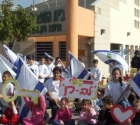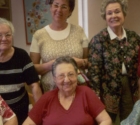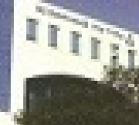
According to the law, medical care given in the emergency room must be paid for, but there are few exemptions:
- A patient that was referred with a medical referral or a form known as Tofes 17. This is a form issued by your Health Care Institute (Kupat Holim) stating that the bill for the specific aid you will receive in hospital will be paid for by the Kupat Holim. This is a very common document and you’ll need it to perform most of your exams outside the Kupat Holim.
- A patient that was hospitalized (not just in the ER) even if he does not have a Tofes 17.
- A patient who was injured at his place of employment who has a Tofes 250 or 283.
- A patient who was injured in a car accident and has a referral (Ishur Mishtara) from the police.
- A student who was injured in the framework of his studies or at school and he has a referral from his school.
- Anyone who has a (new) broken limb.
- A severe displacement of a shoulder or elbow.
- An injury which requires fusion by stitches or an alternative method of fusion.
- An accidental aspiration of a foreign object into the respiratory system.
- An accidental entrance of a foreign object into the eye.
- Care needed in the case of cancer, hemophilia, and cystic fibrosis.
- Labor contractions.
- Evacuation by a Magen David Adom ambulance from the street or a public place following a sudden incident.
- An infant until the age of two months who was evacuated following a sudden high fever (over 38.5 C or 101.3 F).
- Patients needing dialysis.
- A victim of family violence or sexual assault.
Any referrals to the emergency room that were not included in the above exemptions are obligated to pay a fee of 147 NIS, according to the fees stipulated by the Ministry of Health.
Magen David Adom has two types of ambulances. The white one is the regular ambulance. It is driven by a professional medic and generally has another medic to help. In many cases you will find young volunteers who help with the paperwork and even first aid. The orange ambulance was in the past called natan, but today you will find only atan (ambulance l’tipul nimratz) which is a mobile intensive care unit. In addition to the personnel of the regular ambulance, there is also a paramedic on board with broad medial authority. They are highly prepared and professional, but they are not physicians.
If you were evacuated by one of the orange ambulances (which is more expensive than the regular one), and subsequently you were not hospitalized, you are entitled to a reimbursement of 50% of what you were charged by Magen David Adom.
Fortunately, un like in the past, if you are entitled to it, your Kupat Holim will take care of the payment for you.
In a car accident, you will not receive a bill from the ambulance, but the bill will be mailed to your home address. The procedures will be the same as described above.
In a car accident, when evacuated by an ambulance, you will not be reimbursed by the Kupat Holim, but you will be entitled to a reimbursement from the insurance company of the car you had the accident in (even if this is not your car). The hospital bill will be paid by the insurance company. All you have to do is present the police referral from the accident to the hospital authorities.
Please note that you will need a lawyer to handle compensation from the insurance company; don’t be tempted by suspicious offers from insurance company representatives.
Tzvi Szajnbrum, Attorney at Law
 LEV-RAN SCHOOL: A LOVE STORY (new)
LEV-RAN SCHOOL: A LOVE STORY (new) DEAR EDITOR 154
DEAR EDITOR 154 KNITTING CLUBS: TEL AVIV'S KNITTING & CROCHET SOCIAL CIRCLE
KNITTING CLUBS: TEL AVIV'S KNITTING & CROCHET SOCIAL CIRCLE Yad Sarah's new house in Raanana
Yad Sarah's new house in Raanana English speaking Feldenkreis
English speaking Feldenkreis Men don't Make Passes at Girls who Wear Glasses
Men don't Make Passes at Girls who Wear Glasses Tzvi Szajnbrum
Tzvi Szajnbrum